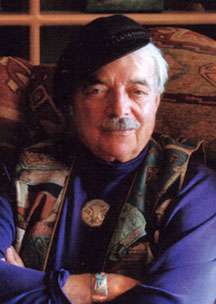By James Bishop, Jr.
(April 20, 2018)
 Without hope we live in desire
Without hope we live in desire
— DANTE, 1321 AD
Time was thousands of years ago that the great philosopher Aristotle asserted, “Hope is a waking dream.” Does that not seem to be the situation today? Don’t we hear people in the markets and restaurants speak of hope that traffic jams will cease, hope that teachers will be paid more, hope that rents will drop and the Hub on the Posse Grounds will thrive, and the Verde River will never go dry.
Indeed, the mere mention of hope has long been fodder for poets. One may recall Emily Dickinson’s “Hope is the thing with feathers that perches in the soul and sings the tune without the words, and never stops at all.”
However, wait for just a minute.
Wander back in time and recall the tale of Pandora, a Greco-Roman Goddess who was given a tightly sealed box and told by higher-powers never to open it. Resist it she could not and out spilled sorrow, plagues, mischief. Try as she as she could, Pandora could not put the lid back on and just one thing remained in the box: Hope —sole comfort in times of misfortune.
Back in those days, there was no mention of actually doing something to overcome misfortune. Remember what happened in more recent times when local citizens led by Bennie Blake stopped a bridge from being built at Red Rock Crossing deciding that attention to intention was the way to go. Currently, up on the Posse Grounds it was not hope, which created a new park but local citizen power.
Meantime, hope for many remains the reason for protection against despair from the world’s troubles and against vile leaders.
Yet is hope, after all, just an optimistic state of mind based on an expectation of positive outcomes just around the mythical corner? Don’t we need more than a state of mind? Could it be that betting on hope alone freezes us from action and resolution?
As it is now, hope is still regarded as our beacon in the dark, the light at the end of a long tunnel. Fine and dandy but should we not beware of false hopes? False hopes can lead us to unlivable situations and blind us to real possibilities. Consider the plastic that is taking over the Pacific Ocean, the size of France. To begin with, there is the hope that somehow the system will change, that technology will save us like a great mother.
Does anybody really believe that Monsanto will stop making poisonous products because we ask them nicely, or if we can only get a Democrat in the White House?
Enough already.
Read one anthology, after another and find that hope fills the pages. To most people hope is a feeling that something they wish for will come true. Ironically, some scholars and politicians argue that hopes alone actually lead us to unlivable situations. Is it not urgent that we the people add our intention to investigate why the salaries for teachers have declined, visit the Verde River and spend some time getting to know her, stop using plastics, be helpful and kind, stay aware of things that feel wrong in this world and do our best to take a stand.
Intention brings us into the equation that provides power to do something about the things that we “hope” will get better. When we intend to do something, this creates a commitment to take an active role in the present moment and help dire situations improve, such as in our schools.
In the Carlos Castaneda books, which were popular during the 70’s, Don Juan, a Yaqui medicine man, spoke of the power of our intention being the key to unlocking our power. He said, “In the universe there is an immeasurable, indescribable force called intent. Absolutely everything that exists in the entire cosmos is attached to intent by a connecting link. Intent is thoughts and actions projected beyond our human condition.” Nonetheless, not enough of us have read his books and are still comfortable with hope remaining in Pandora’s Box.
Last word goes to long time Arizona intellect Michelle: “So, yes, hope springs eternal, which is just what makes it so dicey, but also so compelling. Maybe hope is really just our last best chance.”
By Bishop and Walker 4/18/18




1 Comment
As expected and welcomed, James Bishop delivers a dichotic message, reminding us that our lack of vision can lead to failings and shortcomings, yet signaling to oncoming traffic that there is an accident ahead that requires attention and can be moved by a group of concerned citizens to allow us to continue. Sadly, many will seek a detour or turn around to avoid getting involved. He reminds us that getting your feet wet is indeed the best way to enjoy what sand is left on the beach. Thanks to Bishop, the artists and art lovers, and those who not only admire and appreciate their surroundings but who are also willing to move the bulldozed boulder to allow the water to flow freely, will continue to be inspired to show up, stand up and speak out, to participate alongside nature to protect and impress the wonder that is around us.